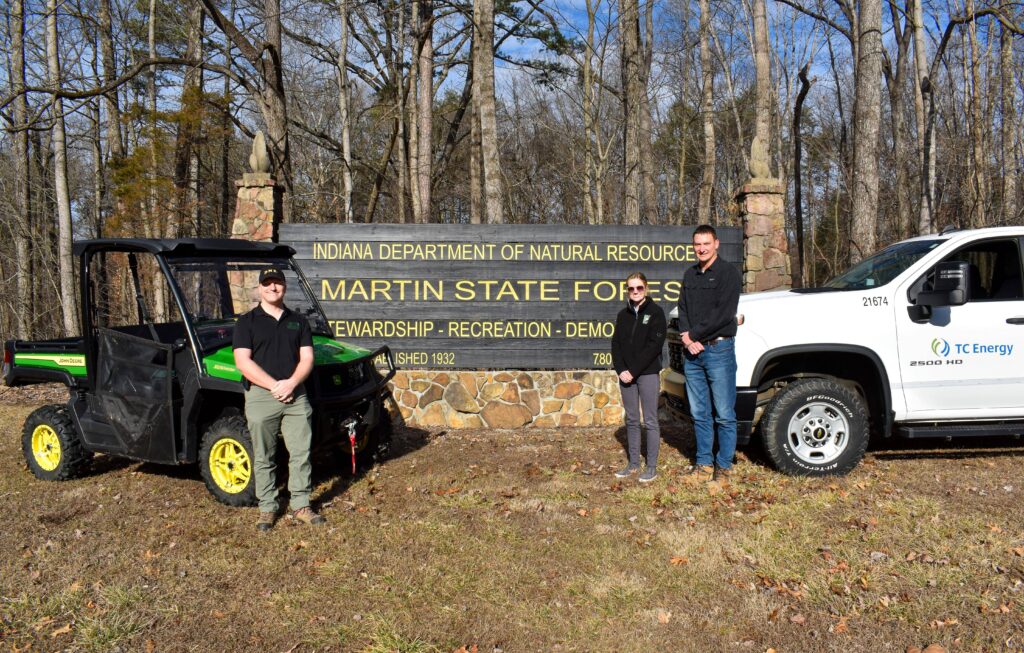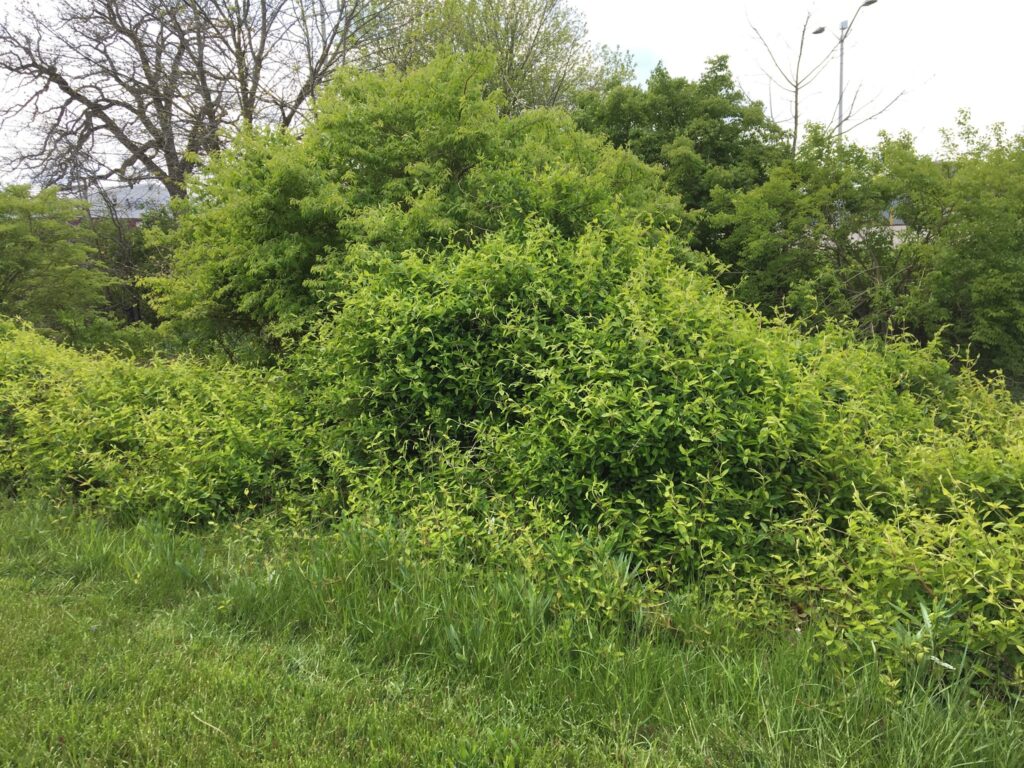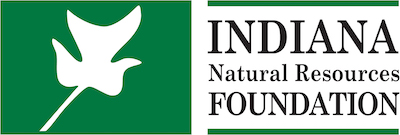TC Energy Continues Support of Indiana’s Natural Resources
A $19,000 grant from TC Energy gives staff at Martin State Forest more resources to create and maintain healthy native habitat on the property. The grant, which was awarded to the INRF last year, supported the purchase of a utility terrain vehicle (UTV) that assists property staff with many habitat management practices, including invasive species management, which is a high priority for the Division of Forestry.

Alex Gust (Indiana DNR), Erika Petersen (INRF), and Chris Hopf (TC Energy) with the UTV at the Martin State Forest entrance.
Continued growth of invasive species such as Japanese stiltgrass, Japanese honeysuckle, and multiflora rose presents a challenge to the Division of Forestry, and the UTV provides more efficiency in managing vulnerable areas.
“If these species are not controlled, they can have negative ecological impact on the landscape by displacing native species and preventing the establishment and advancement of native understory species,” said Brad Schneck, assistant state forester.
Controlling the growth of these invasive species now is imperative for both the health of native species and reducing their economic impact. If the invasives are left uncontrolled, even more time, effort, and funding will be necessary in the future.

Japanese honeysuckle can quickly spread and limit growth of native species. Photo courtesy of Indiana DNR.
Treatment of the invasive species at Martin State Forest can take place in the spring, summer, or fall. In preparation for management treatments this spring, the UTV will be outfitted with a spray system, which will play a crucial role in giving staff greater penetration into the forest by use of trails, fire lanes, and other areas that other vehicles struggle to access.
Prescribed fire is another management practice the UTV will greatly assist with. Historically, fires were a common ecological disturbance. With the reduction in natural fires, prescribed fire mimics the natural disturbances and improves the habitat. In 2022, a similar TC Energy grant supported prescribed fire practices at Patoka Lake.

A prescribed fire at Patoka Lake. Photo courtesy of Brian Finch.
Whether through invasive species management, prescribed fire, or emergency response, the UTV will play a significant role in supporting the dedicated work of DNR staff for years to come. Powerful partnerships like this are making a difference for Indiana’s public lands.
“We greatly appreciate this opportunity and the generous donation that is a benefit to the operations at Martin State Forest,” Schneck said. “Both TC Energy and the INRF have been great supporters, and we welcome and look forward to continued partnerships.”
We can celebrate and preserve Indiana’s natural legacy thanks to the generous support of our donors and partners. You can help us maintain Indiana’s rich biodiverse ecosystems by donating to the INRF today.
